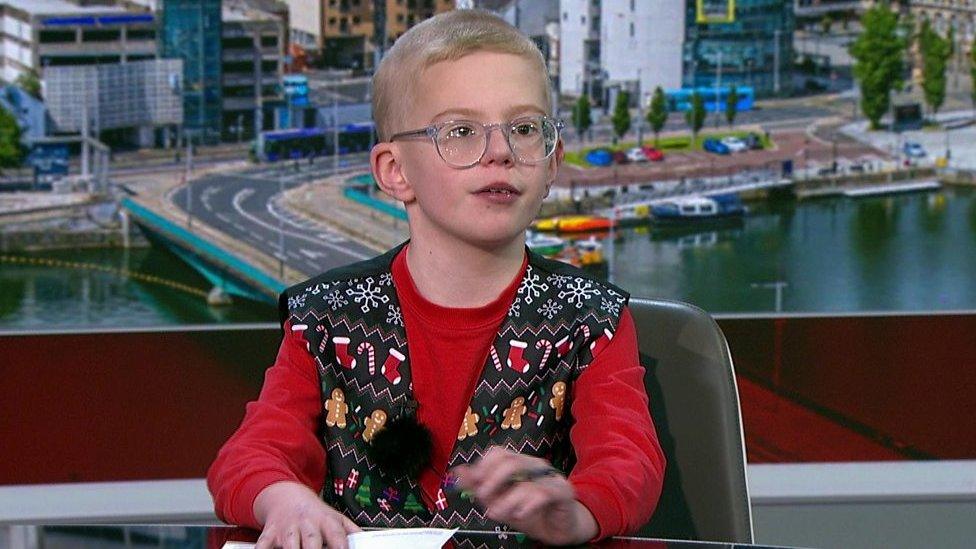Model railway club providing safe space for young people
- Published
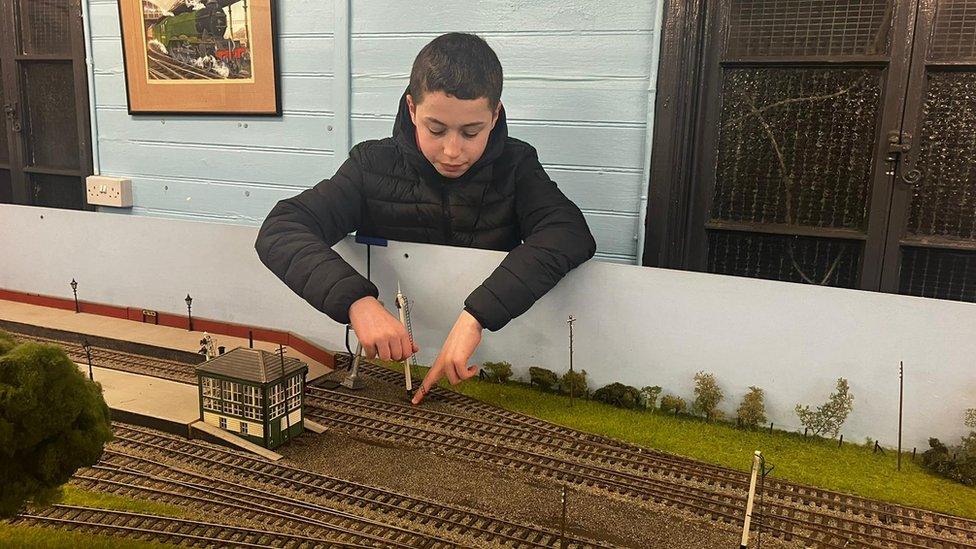
Charlie says he joined the club because he is a "train enthusiast" and was delighted to meet other fans of the hobby
A model railway club is helping to provide a safe space for autistic young people to get involved in the hobby.
The North Down Model Railway Society in Bangor, County Down, has been welcoming model railway enthusiasts since it was founded back in the late 1970s.
North Down Model Railway safeguarding officer, Ellen Dickson, said the club has members aged from eight to 90.
The club hosts an event every fortnight specifically for their younger members who are on the autism spectrum.
Mrs Dickson, who is also exhibition manager for the North Down Model Railway Show, said the hobby of model railway is something that everyone should and can be able to get onboard with.
'Interested and passionate'
At a model railway exhibition last year, Mrs Dickson said she noticed more and more autistic children showing an interest in the hobby.
"When we were at our show last year, myself and my husband saw high foot-traffic of young autistic people becoming very interested and passionate about model railways," she said.
"We are parents to an autistic child ourselves and we kind of went there is definitely a need here to support neurodiverse kids who are coming into this hobby.
"After we canvassed a few of them at the show, we ended up getting a handful to sign up."
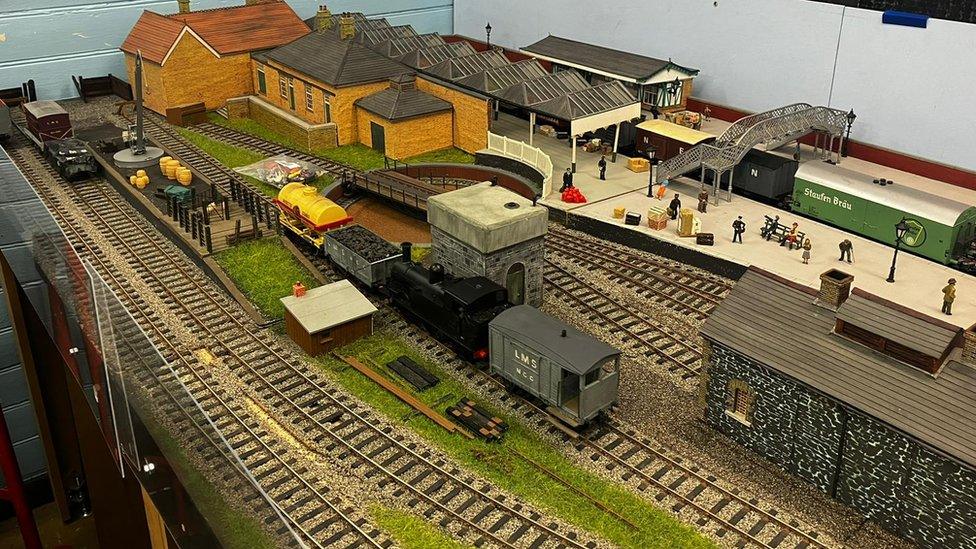
The club boasts a variety of model railway layouts, with many young people bringing their trains from home to run on the tracks
Mrs Dickson, who got involved in model railways as a Covid-19 lockdown hobby, said the club then went about ensuring that all their new members would feel welcome.
"In terms of being here, enjoying the hobby, running the trains and being with a community, it was something that we needed to focus on and put some things in place for that to happen," she said.
"Thanks to that, we now have a fantastic little hub here that meets every fortnight."
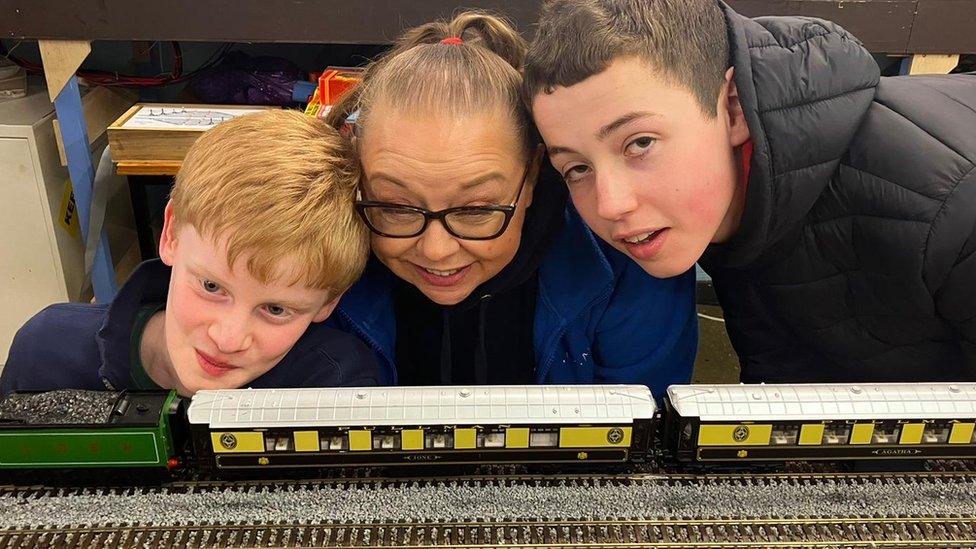
Ellen Dickson says many members in their group are fascinated by all things transportation
The club boasts a variety of model railway layouts, with many young people bringing their trains from home to run on the tracks.
For 11-year-old Jon Jo, his passion for all things trains is easy to see as he lists off every variety of locomotive making its way round the club's layouts.
'Too many trains to count'
He said the club is a great way to meet fellow hobbyists and has made a lot of friends through the club.
"It all started at a model railway show," Jon Jo told BBC News NI.
"They invited me to come down the following Monday and I've never looked back since.
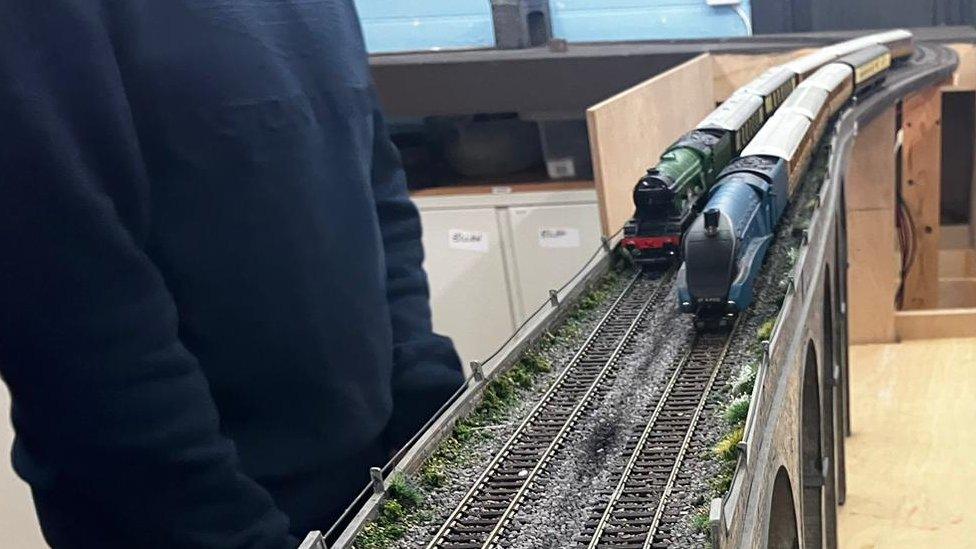
Many young people bring a lot of their own OO gauge locomotives and run them on the club's layouts
"There are so many different engines that people can bring to the story - there isn't just steam, there's electric, there's diesels."
Jon Jo said his favourite steam engines are the Flying Scotsman and Mallard, which he owns in OO scale.
"Also the E2 class tank engine, which I also own in OO scale, which is basically the real-life Thomas The Tank Engine," he added.
When asked how many model trains Jon Jo owns, he replied: "There are too many to count."
Charlie, who is 14, is a self-confessed transport enthusiast.
He said everything from planes to trains - essentially anything with wheels - he's interested in.
He said the club gives him "pure enjoyment" and told BBC News NI that he loves getting to hang out with fantastic people who love trains just as much as he does.
"The look about them, the sound about them - everything about them," is how Charlie summed up his love of trains.
"I think everyone should become a train enthusiast, the people here are just absolutely amazing and seeing new railway modellers coming through is just brilliant as well."
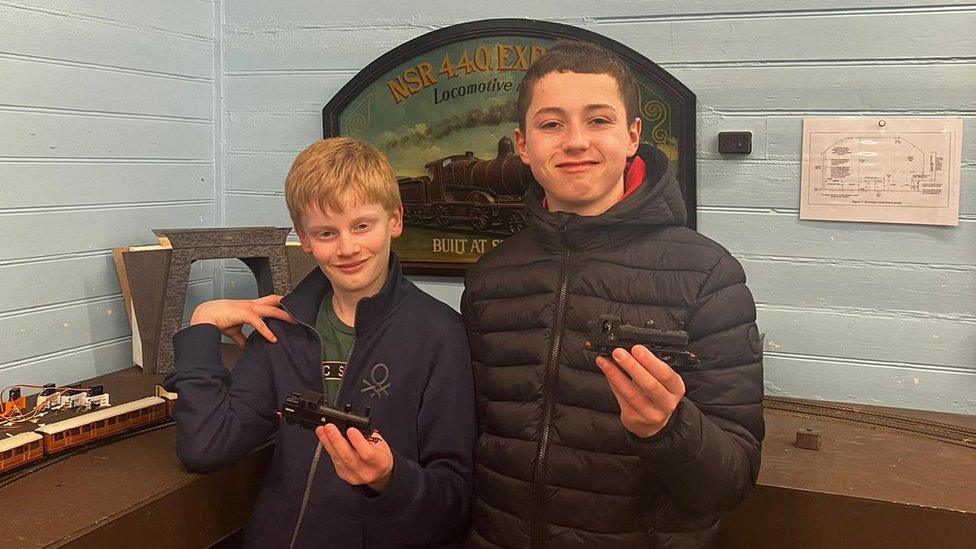
Charlie and Jon Jo pictured holding some of the club's locomotives
Mrs Dickson said every child "needs to find their tribe" and believes "finding an area of commonality" within a community is really beneficial for them.
"What I have observed as a mother of an autistic child is this hobby plays to those who have a thirst for knowledge, with its level of detail, information capturing and replay factor," she said.
"Being able to understand the different types of locomotives, their different genres and different wheel configurations, etc.
"I also think the prototypical correctness of it plays very much to that binary thinking, as does detail orientation.
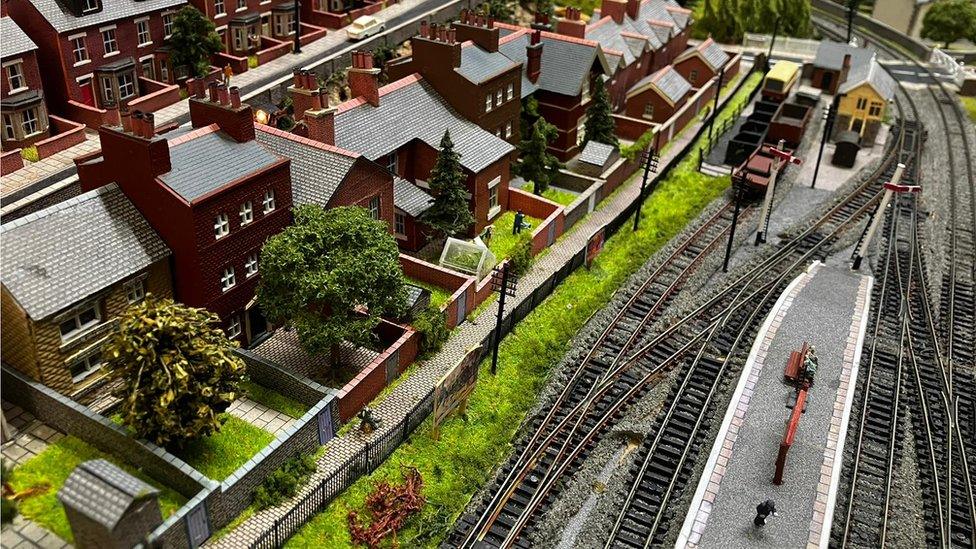
People involved in the club can paint scenery and get help creating their own layouts, like the ones at the club
"I think it's a combination of all those things that get kids into modelling as a hobby when there is neurodiversity present."
Mrs Dickson said she has been blown away by just how popular the fortnightly event has become and believes it shows there is a real need for more clubs and societies like theirs.
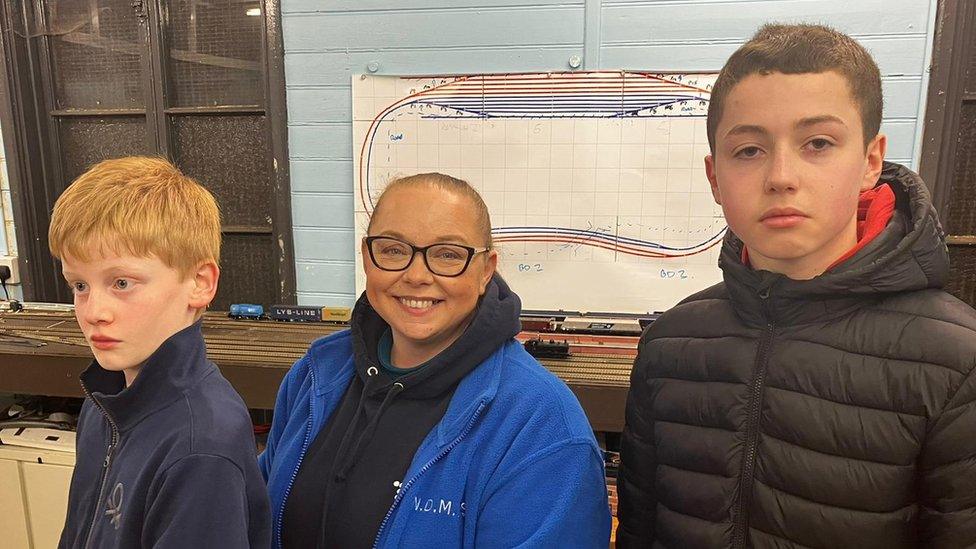
Jon Jo (left) , Ellen Dickson (middle) and Charlie (right) are all railway modellers
"We've found that many parents of autistic children are seeking us out proactively now that they know there is a safe space here," she said.
Related topics
- Published22 February 2019
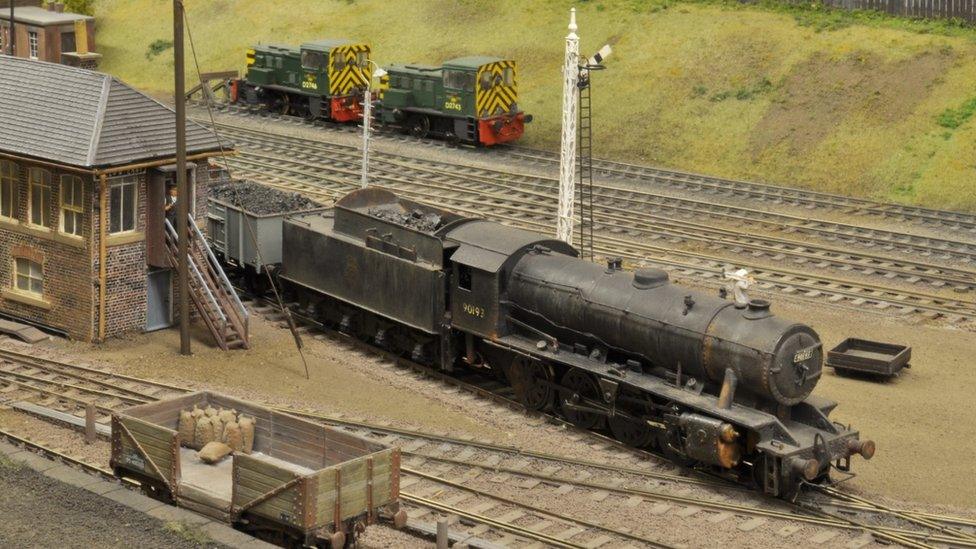
- Published24 May 2023
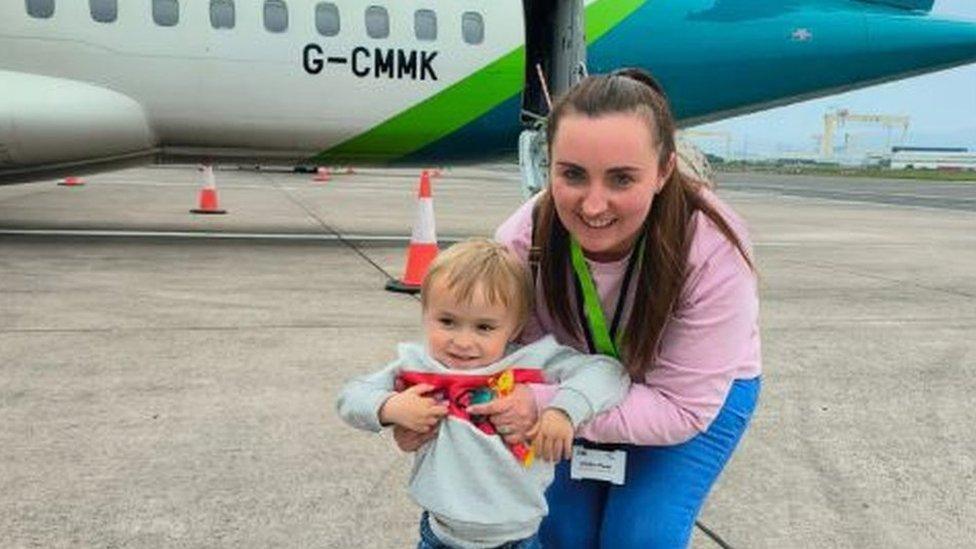
- Published11 February 2023
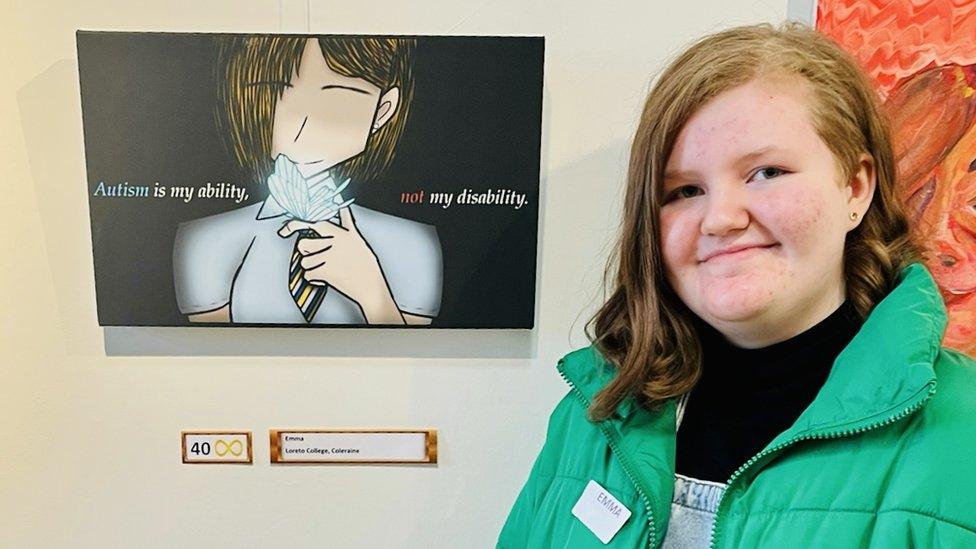
- Published20 December 2023
